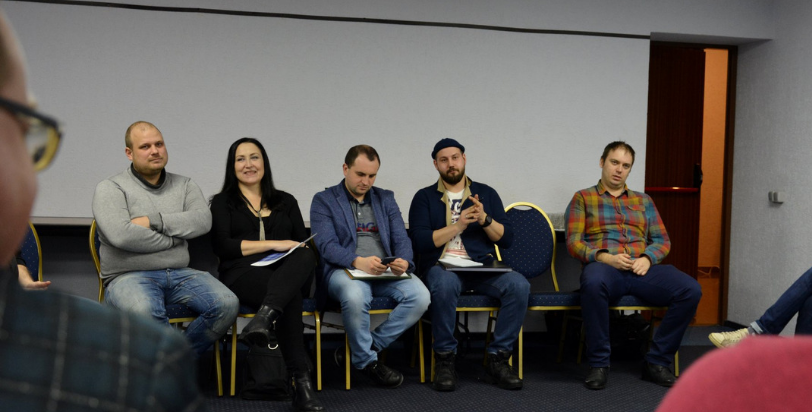12 trainers from Civil Network OPORA will teach employees of law-enforcement bodies about peculiarities of electoral legislation and its application during election of the President of Ukraine and the Verkhovna Rada of Ukraine. Thus, around 3 thousand patrol police officers and investigators of the National Police will be trained in each oblast and in Kyiv.
Police officers will learn how to respond to typical violations during an election process, identify key administrative and criminal offenses, and about peculiarities of the voting itself. It is expected that trainings will improve the work of patrol officers and National Police officers in prompt and operative response, as well as proper recording and investigation of cases, related to electoral crimes.
“OPORA's observers often noticed that law-enforcement officers didn't know how to identify electoral violations. Thus, we came up with an idea, supported by the corresponding requests from police officers, to train them on what is an election; tell about its stages, and how to identify violations at each of these stages; explain how to determine who is responsible for these violations; and teach how to gather a good evidence base to bring them to responsibility,” – explained Andrii Tokarskyi, Director of the Efficient Police Guaranteeing Legitimate Electoral Process Project at Civil Network OPORA.
On 13-15 February, 12 trainers were taught how to train such target audience as police, and improved their knowledge about activities of law-enforcement bodies in the response to and investigation of electoral crimes. Training participants used practical examples of violations falling under criminal and administrative codes.
“We organized this training to help representatives of Civil Network OPORA, who use electoral legislation in practice while watching elections for over 10 years, to train police officers on how to detect electoral crimes, and which things to notice, in order to report violations, which are happening now and will happen in future,” – stated Maksym Yeligulashvili, the expert who developed interactive training program for police officers.
“We know that there is no special subdivision working on electoral violations in law-enforcement system. Thus, these investigations are made by investigators, patrol officers, or other employees of law-enforcement bodies, who are working on other cases. Thus, they need, and in fact they said they need, additional training, consultations, and discussion of electoral violations, to strengthen their capacity, especially this year, when we have two election processes,” – OPORA's trainer Mariia Tsypiashchuk added.
According to the monitoring of law-enforcement bodies and judicial institutions, held by Civil Network OPORA in cooperation with the International Foundation for Electoral Systems (IFES) in 2015, over 75% of criminal proceedings related to electoral rights violations committed during 2014 early parliamentary elections in Ukraine have failed to bring any result. Only 4.5% of criminal proceedings (13 of 291) were sent to trial. Almost 74% of pre-trial investigations related to 2015 regular local elections were closed due to the lack of corpus delicti of a criminal act.
For comment, please contact:
Andrii Tokarskyi, Director of the Efficient Police Guaranteeing Legitimate Electoral Process Project at Civil Network OPORA
Phone: 0938338345
e-mail: [email protected]
Reference: This initiative is realized by Civil Network OPORA All-Ukrainian NGO under project “Strengthening legislative and electoral processes through an increased citizen engagement and technical assistance”, implemented by the International Foundation for Electoral Systems (IFES) and British assistance from the UK Government. The opinions expressed herein are those of the authors and do not necessarily reflect the views of British Government.
